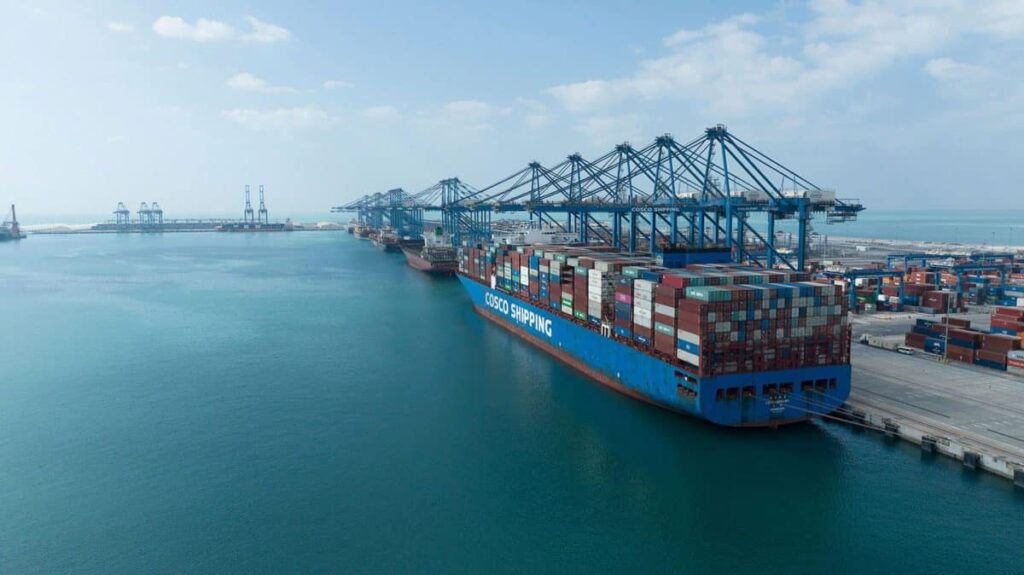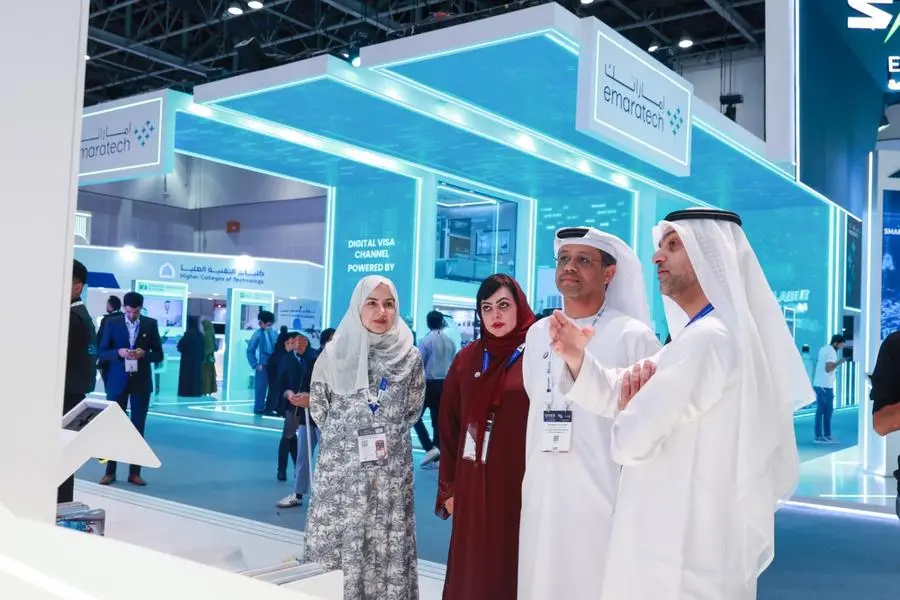The Abu Dhabi Advanced Trade and Logistics Platform (ATLP) has announced a major upgrade, introducing a series of new features designed to simplify and digitalize trade, customs, and logistics services across air, sea, and land transport. The latest enhancements mark another milestone in Abu Dhabi’s ongoing effort to strengthen its position as a global trade and logistics hub, while supporting businesses with faster, smarter, and more efficient trade processes.
Transforming Trade Through Innovation
Launched by Abu Dhabi’s Department of Government Enablement and operated by Maqta Gateway, part of AD Ports Group, the Abu Dhabi Advanced Trade and Logistics Platform serves as the single-window system for all trade-related services in the emirate. Since its inception, the platform has played a key role in streamlining procedures, reducing paperwork, and integrating multiple government and private-sector entities under one digital ecosystem.
With the latest updates, ATLP aims to further empower businesses by offering end-to-end visibility, automation, and predictive analytics across all modes of transport. Whether importing goods through Khalifa Port, exporting via Abu Dhabi International Airport, or moving shipments overland to neighboring Gulf states, traders can now handle all logistics processes seamlessly through one integrated platform.
A New Era of Smart Customs and Trade Facilitation
The new features introduced under the Abu Dhabi Advanced Trade and Logistics Platform are designed to make customs clearance and cargo handling more efficient, transparent, and secure. Businesses can expect faster approvals, fewer manual interventions, and real-time tracking capabilities.
Key New Features Include:
- Unified Customs Declaration System:
Traders can now submit and manage customs declarations for imports, exports, and transshipments through a unified interface. This eliminates redundant processes and ensures that all government stakeholders—from customs authorities to port operators—can access synchronized data in real time. - AI-Driven Risk Assessment Tools:
The platform integrates advanced artificial intelligence (AI) to assess shipment risks automatically. This helps customs authorities identify high-risk consignments quickly while expediting the clearance of low-risk goods, reducing average processing times. - Integrated Payment Gateway:
Businesses can make all customs and port-related payments directly through ATLP using a secure online payment system, simplifying financial procedures and reducing delays. - Real-Time Cargo Visibility:
A comprehensive cargo tracking feature allows companies to monitor their shipments across the supply chain, from origin to final destination, whether by air, sea, or land. - Document Digitization and e-Certification:
The platform now supports fully digital documentation, including e-certificates of origin, invoices, and bills of lading. This not only minimizes human error but also promotes paperless trade in line with Abu Dhabi’s sustainability goals. - Predictive Logistics Planning:
Using machine learning algorithms, ATLP now provides insights into optimal shipping routes, congestion forecasts, and customs trends—helping businesses make smarter logistics decisions.
Bringing Efficiency Across Air, Sea, and Land

The Abu Dhabi Advanced Trade and Logistics Platform connects all major gateways in the emirate, ensuring smooth coordination between air cargo terminals, seaports, and land border facilities.
1. Air Freight Integration
At Abu Dhabi International Airport, the platform links airlines, freight forwarders, and customs authorities on a single system. The integration allows pre-clearance of air cargo, reducing waiting times and improving warehouse management.
2. Maritime and Port Logistics
For sea freight, ATLP connects directly with Khalifa Port, Zayed Port, and Mussafah Port, enabling efficient scheduling of vessel arrivals, container management, and customs processing. The system’s predictive tools also assist in optimizing port operations to avoid congestion.
3. Land Transport and Cross-Border Trade
ATLP extends its functionality to land freight, particularly for trucks operating between the UAE and neighboring countries. Cross-border clearance processes have been streamlined to cut travel delays and improve cargo turnover times—especially important for time-sensitive goods like food products and pharmaceuticals.
Boosting Business Competitiveness in Abu Dhabi
By unifying multiple trade and logistics services, the Abu Dhabi Advanced Trade and Logistics Platform is helping businesses cut costs, save time, and gain a competitive edge. Companies that rely on imports or exports can now manage their entire logistics chain through one interface, avoiding the need to interact with multiple government systems or third-party operators separately.
Small and medium-sized enterprises (SMEs) benefit the most, as the platform removes barriers to entry by simplifying complex regulatory requirements. Moreover, the reduction in administrative burdens means that businesses can redirect their focus toward expansion and innovation rather than procedural compliance.
The new platform features are expected to reduce average customs clearance time by up to 50% and administrative costs by as much as 30%, according to preliminary performance indicators shared by AD Ports Group.
Part of Abu Dhabi’s Digital Transformation Vision
The ongoing evolution of the Abu Dhabi Advanced Trade and Logistics Platform reflects the emirate’s broader digital transformation strategy. Abu Dhabi has been investing heavily in smart infrastructure, artificial intelligence, and automation to enhance public service delivery and economic competitiveness.
The ATLP plays a central role in achieving these goals by aligning with the Abu Dhabi Economic Vision 2030 and the UAE’s National Digital Economy Strategy. By digitizing trade and customs, the platform supports the nation’s objectives to diversify its economy beyond oil and create a sustainable, innovation-driven logistics ecosystem.
In addition, the platform’s interoperability with federal systems, such as the UAE’s unified customs network, ensures that Abu Dhabi remains aligned with national trade facilitation standards and global best practices.
Enhancing Sustainability and Environmental Efficiency

Digital transformation through the Abu Dhabi Advanced Trade and Logistics Platform is not only about efficiency—it also contributes to sustainability. By replacing paper-based procedures with digital workflows, the platform significantly cuts down on paper waste and carbon emissions.
Moreover, optimized logistics planning reduces fuel consumption by minimizing idle time for trucks and ships, supporting Abu Dhabi’s commitment to green logistics. These efforts align with the UAE’s broader ambition to achieve net-zero emissions by 2050.
Industry Collaboration and Private Sector Integration
The success of the Abu Dhabi Advanced Trade and Logistics Platform is built on strong collaboration between the public and private sectors. The system integrates with logistics service providers, shipping lines, airlines, freight forwarders, and warehouse operators, creating a unified digital ecosystem that benefits all participants.
For instance, freight forwarders can use ATLP’s APIs to connect their own systems directly with government services, allowing automatic data exchange and eliminating manual data entry. Shipping companies can book port slots and track cargo directly, while customs brokers can receive automated notifications for cargo clearance updates.
This level of integration fosters transparency and builds trust between stakeholders, helping to create a resilient and future-ready logistics network.
Empowering Data-Driven Decision Making
One of the most powerful aspects of the upgraded Abu Dhabi Advanced Trade and Logistics Platform is its advanced data analytics capability. Businesses and authorities can now access dashboards that visualize key performance metrics such as cargo volumes, clearance times, and route efficiencies.
These insights help decision-makers identify bottlenecks, predict market trends, and respond quickly to disruptions—an essential capability in today’s fast-changing global trade environment. Over time, the data generated by ATLP will help Abu Dhabi policymakers refine trade regulations, optimize infrastructure investments, and strengthen global competitiveness.
A Future-Ready Platform for Global Trade
As Abu Dhabi positions itself as a central node in global trade routes connecting Asia, Africa, and Europe, platforms like ATLP will be crucial in shaping the emirate’s logistics future. The Abu Dhabi Advanced Trade and Logistics Platform is not just a digital service—it represents a new model of how governments and private enterprises can collaborate to build smarter, more resilient economies.
By continuously evolving, ATLP is setting a benchmark for trade facilitation across the Middle East. The integration of AI, automation, and predictive analytics ensures that Abu Dhabi remains at the forefront of digital logistics innovation.
With these latest enhancements, the platform strengthens Abu Dhabi’s role as a leading hub for trade and commerce, driving economic growth, sustainability, and technological leadership in the years to come.
Conclusion
The Abu Dhabi Advanced Trade and Logistics Platform continues to redefine the region’s logistics landscape by merging innovation, efficiency, and sustainability. With its new features, businesses across air, sea, and land transport can now experience a smoother, faster, and more transparent trade journey.
By bridging the gap between technology and logistics, ATLP reinforces Abu Dhabi’s vision of a digitally empowered, globally connected economy—one that delivers value not just for businesses, but for the entire region.
Do Follow Gulf Magazine on Instagram
Also read: Desserts of the UAE: A Blend of Culture and Tradition



